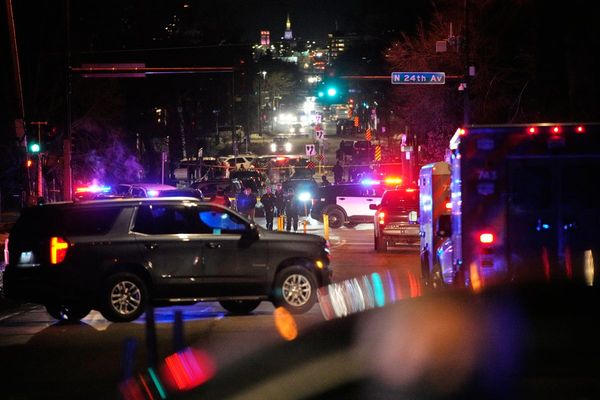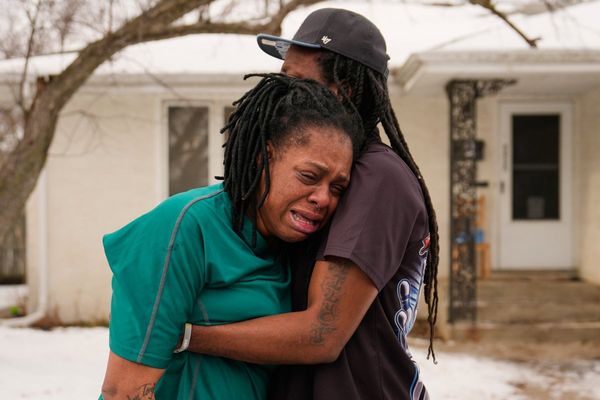
This week's collapse in European Union peace talks between Azerbaijan and Armenia underlines the growing importance of Turkey in the region, as Azerbaijan blames its refusal to attend the "talks" on the exclusion of its close Turkish ally.
The EU's attempt to revive peace talks between Armenia and Azerbaijan ended before they started, with Azeri President Ilham Aliyev refusing to attend.
The Azerbaijan state news agency blamed EU leaders for excluding Turkish President Recep Tayyip Erdogan from peace talks.
Turkey and Azerbaijan have always been close, often describing themselves as "one nation, two states."
But Ankara's military support through hardware sales and training that proved decisive for Azeri forces ousting ethnic Armenians from the dispute Nagorno Karabakh enclave has taken Turkish-Azerbajani relations to a new level.
"Turkey has supported Azerbaijan very directly from the very beginning," explains Huseyin Bagci, head of the Ankara-based Foreign Policy Institute.
"Now, Turkey will be a supporter of Azerbaijan, not only in this issue (Nagorno-Karabakh) but in many other issues Azerbaijan would face.
"All the challenges Azerbaijan will have in military terms, Turkey will side with Azerbaijan, and we will see how the Russians and the Iranians also react to these developments.
"Turkey will play a crucial role in economic development and the military protection of Azerbaijan in this region."
Boon for Ankara
Ankara has already started to reap rewards from Azerbaijan's victory, with Turkish construction companies securing major reconstruction contracts in the region. Erdogan is looking to the area to help kick-start Turkey's crisis-ridden economy.
But the deepening alliance between Ankara and Baku is set to challenge Russia's once dominating influence in the Caucasus, a region it considers its backyard.
Analysts say Moscow, for decades, used Armenia's dispute with Azerbaijan over the Nagorno Karabakh enclave to help maintain its control of the region.
"There has been a change of paradigm because we always thought that Russia was interested in keeping this conflict alive and benefiting from this conflict to keep its relations with Armenia and Azerbaijan intact," says Gallia Lindenstrauss, a Caucasus expert at the Institute for National Security Studies in Tel Aviv.
But with Moscow possibly distracted by its war in Ukraine, its grip on the region is being challenged.
"The fact that it allowed Azerbaijan to win such a big military victory is definitely a change of heart for Russia, and it will influence, at least in the short term, its ability to act," says Lindenstrauss.
"Having said that, Azerbaijan is perhaps too strong from the perspective of Russia and Iran, and how they will react to the strengthening of Azerbaijan in the long run may also create problems for Turkey."
Strategic priority
Turkey's alliance with Azerbaijan is one of its main strategic priorities, underlined by the 2021 Shusha Declaration, which commits Ankara to the defense of Baku in the event of an attack.
But Turkey is no stranger to handling and managing differences with Russia.
"Turkey and Russia have very different positions and very different interests," says Russian expert Zaur Gasimov of Bonn University.
"If you take northern Africa, if you take Syria, if you take the Caucasus, and also in Ukraine, they have really very different positions."
Erdogan, much to his Western allies' unease, has developed a close relationship with his Russian counterpart, Vladimir Putin, despite their differences.
"But both sides are aware in all these subregions that they have to communicate to interact, and that is the content of their cooperation," says Gasimov.
"It's not a mutual interest. It's the understanding of the importance and essential of cooperation and staying in a dialog with each other."
Dealing with a more assertive Ankara and Baku will likely be the uncomfortable reality that Moscow now has to face in its dealings in the Caucasus.
This a lesson some observers say the EU may also need to learn as it seeks to play a more significant role in the region with its latest call for new peace talks, perhaps later this month in Brussels between Armenia and Azerbaijan.







